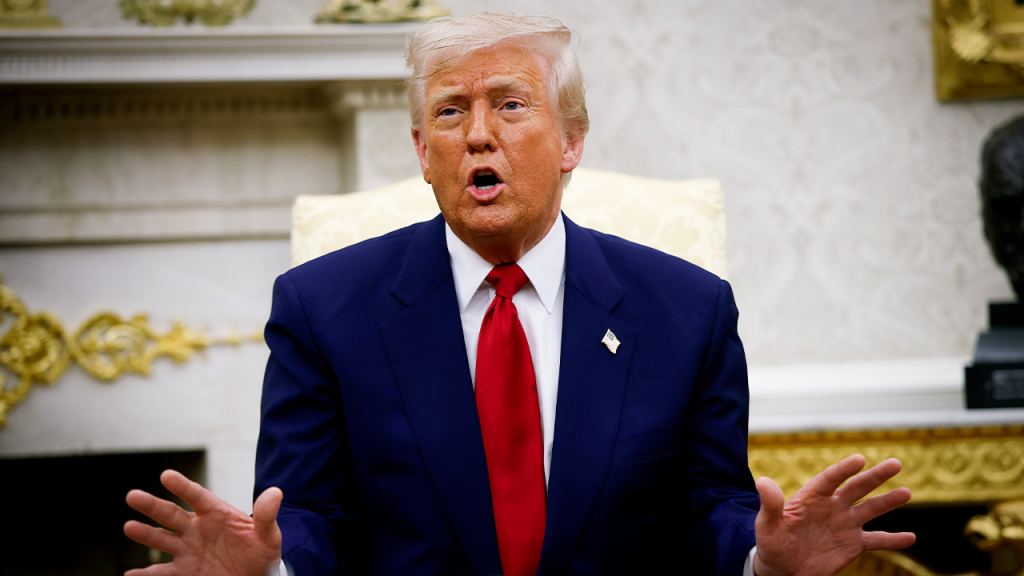On April 7, 2025, President Donald Trump announced that the United States will engage directly with Iran in a high-level meeting scheduled for Saturday. The meeting seeks to address concerns related to Iran’s nuclear program, marking a significant shift in U.S. policy since the withdrawal from the Joint Comprehensive Plan of Action (JCPOA) in 2018. With the backdrop of escalating tensions, officials hope this dialogue will pave the way for a diplomatic resolution to a potentially explosive situation.
| Article Subheadings |
|---|
| 1) Background on U.S.-Iran Relations |
| 2) Details of the Upcoming Meeting |
| 3) Trump’s Position on Iranian Nuclear Threat |
| 4) Regional Implications and Allies’ Concerns |
| 5) Potential Outcomes and Future Directions |
Background on U.S.-Iran Relations
The relationship between the United States and Iran has been fraught with tension and conflict for decades. Following the Iranian Revolution in 1979, diplomatic ties were severed, and hostilities escalated through events such as the Iran Hostage Crisis. In 2015, the JCPOA was established to limit Iran’s nuclear capabilities in exchange for sanctions relief, aiming to foster stability. However, in 2018, the Trump administration withdrew from the agreement, citing concerns over Iran’s regional activities and missile program. This move resulted in increased hostility, with Iran subsequently ramping up its nuclear activities, a situation that has led to urgent calls for renewed dialogue.
Details of the Upcoming Meeting
The upcoming meeting, announced by Trump during a press conference alongside Israeli Prime Minister Benjamin Netanyahu, signifies a pivotal point in U.S.-Iran relations. Scheduled for April 12, 2025, this meeting represents the first explicit engagement since the 2018 withdrawal from the JCPOA. Although specifics about the location and format remain undisclosed, both Trump and Netanyahu have expressed cautious optimism about the potential for constructive dialogue. Trump described the meeting as part of an effort “to deal with them directly,” indicating a shift towards direct diplomatic engagement rather than mere economic sanctions or military threats.
Trump’s Position on Iranian Nuclear Threat
In recent weeks, President Trump has emphasized the urgency of addressing Iran’s nuclear ambitions. He highlighted the dangers posed by Iran’s nuclear program, stating, “It’s getting to be very dangerous territory,” and asserted that successful negotiations could prevent confrontation. In response to criticisms regarding his administration’s previous withdrawal from the JCPOA, he has reiterated that the upcoming talks would be “different” and “stronger.” During the conference, Trump underscored his commitment to preventing Iran from acquiring nuclear weapons, reflecting a staunchly hawkish stance that has characterized his approach to foreign policy.
Regional Implications and Allies’ Concerns
The potential for renewed negotiations with Iran carries significant implications for regional stability, particularly in relation to Israel. Both Israeli leaders and U.S. officials have expressed concerns that a failure to address Iran’s nuclear program could lead to escalated conflict. Netanyahu remarked on the necessity of diplomatic solutions that would ensure Iran remains non-nuclear, drawing parallels with the disarmament processes in Libya. The collaboration between the U.S. and Israel highlights their shared interests in countering Iranian influence in the region while navigating the intricate dynamics of Middle Eastern geopolitics.
Potential Outcomes and Future Directions
As the U.S. prepares for the high-level meeting with Iran, analysts are cautiously optimistic yet wary of the potential outcomes. There is hope that the talks will lead to a framework that curtails Iran’s nuclear capabilities while addressing broader regional concerns. However, skepticism remains, given Iran’s previous commitment to refraining from nuclear development and how quickly it has moved away from agreements. The delicate balance of diplomacy and military readiness will be crucial as both sides approach negotiations. If successful, this initiative could redefine U.S.-Iran relations and promote peace in a historically contentious area.
| No. | Key Points |
|---|---|
| 1 | The U.S. plans to engage directly with Iran in a high-level meeting on April 12, 2025, marking a pivotal point in diplomatic relations. |
| 2 | Trump’s administration emphasizes the importance of dialogue to prevent Iran from developing nuclear weapons. |
| 3 | Netanyahu underscores Israel’s alliance with the U.S. in seeking a diplomatic resolution to Iran’s nuclear program. |
| 4 | Successful talks could reshape U.S.-Iran relations and potentially stabilize the Middle East. |
| 5 | There are concerns about the effectiveness of negotiations given Iran’s previous actions following the JCPOA’s collapse. |
Summary
The upcoming high-level meeting between the U.S. and Iran represents a significant opportunity for dialogue amid escalating tensions over Iran’s nuclear program. With the stakes high, as both nations seek a diplomatic resolution, the outcome of these discussions could alter the trajectory of U.S.-Iran relations and impact regional dynamics considerably. The coming days will be critical as officials work toward achieving meaningful progress while navigating the complexities of international diplomacy.
Frequently Asked Questions
Question: Why did the U.S. withdraw from the JCPOA in 2018?
The U.S. withdrew from the JCPOA citing concerns over Iran’s regional activities and missile capabilities, claiming the agreement did not adequately address these issues.
Question: What is the significance of the upcoming meeting with Iran?
The meeting represents the first direct engagement since the U.S. withdrawal from the JCPOA and aims to address Iran’s nuclear ambitions, potentially leading to a renewed diplomatic effort.
Question: How does Israel view the negotiations with Iran?
Israel, under Prime Minister Netanyahu, supports a diplomatic resolution to curb Iran’s nuclear capabilities, emphasizing the need for strong international action to prevent Iran from acquiring nuclear weapons.



